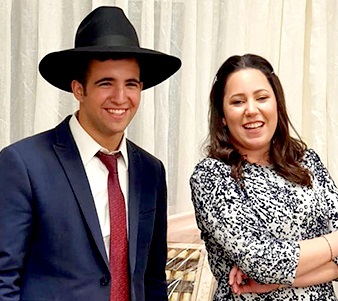At a recent event in Jerusalem, beloved speaker Yemima Mizrachi told a heartwrenching story of an off-the-Derech man who was tragically killed at a young age. The man’s mother, comforted by Mizrachi at the shiva, recalled an event early in life when the boy was humiliated by a teacher: “That was the day my son was murdered.” The Rabbanit’s painful words rung out through the hall. “Today’s generation is being murdered by shame.”
If there is any individual who might be expected to experience shame, it is Dini Rottenberg, a young woman living in Kiryat Sefer. Dini was one of ten children abandoned by her parents at a young age. One by one her siblings scattered across the country. Many of them left the path of Judaism entirely. Dini was taken in by a very special family, at the suggestion of Rav Shteinman zt”l. In the years that have since passed, she has blossomed into a strong, positive individual. Now a far cry from the girl who arrived “alone in the world,” she works with special needs children.
Now that Dini is a kallah, many of her old painful memories must be revisited. She has no parents or siblings to share in her simcha, and the Leibowitzes, though thrilled for her, have their own large family to care for. A hachnasas kallah fund has been opened on her behalf, to help Dini afford wedding staples, as well as basics for her first apartment. On a practical level, the couple lacks just about everything essential to their most basic needs. Beyond the ‘basics,’ however, remains something that, if we consider the perspective of Yemima Mizrachi, is perhaps even more essential: Their dignity.
Click here to escort this couple, with joy and without shame, to their chuppah.












One Response
I read the story and watched the video. Although I only wish her success and happiness, I don’t see how having $0 to your name and having a challenging and really rough upbringing such as her’s connect. Although her upbrining is perhaps more challenging than most, many others suffer from mental and physical illnesses, deaths in the family, or loss of businesses. 1. Is she (or her soon–be husband) studying in school in order to attain a parnasah? 2. Does she (or her husband) currently have jobs or intend on working? 3. If she sadly won’t have enough for basic living after the wedding, then perhaps a wedding in a Rav’s office with a bottle of wine would suffice?